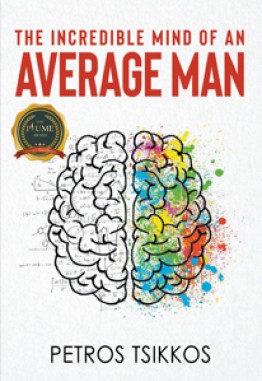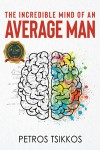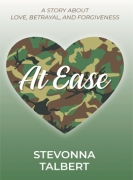The twenty-nine poems presented in this slim volume offer a parade of different perspectives on the human experience. Written from the point of view of a variety of diverse speakers, the poems speak of life, love, and loss. The poet takes readers on an emotional journey in which they encounter God's dismay at his creation, an old man's musings from an assisted living facility, and a person's frustration in facing the diagnosis of ADD. Each poem represents a distinct and unique theme and speaker. Some of the pieces are written in the first person, while others are second-person reflections. However, each resounds with the poet's intent to share these observances and his desire to touch those who read his words.
This book's contemplative verses and wide thematic scope reveal the poet's imagination and passion. The first poem in the volume entitled "Beginning" is told from God's point of view. The speaker begins by remembering how and why he created the world and its inhabitants. "Being the master architect I constructed a plan to create a masterpiece unlike any other / So beautiful and wonderful, that all life would subdue themselves in service to my children." As the Creator continues in his musings, he speaks of his pride in his creation. "I look my first born in the eye and tear up with joy / I can now watch my creation be happy / They can enjoy all that I have given them." Yet, immediately the poem's speaker falls into distress, and his heart grows hard as he realizes the choices made by his children are not good ones. The speaker asks, "Do they know they were created in my image?" Becoming angry, he avers, "I will show my wrath on those who tarnish the good… I will take away… their God." The poem is stirring and reflects the author's purpose of presenting "a different perspective on conversation, sex, music, racism and even the beginning of time itself."
Other works of note in the book are "Rearview," "ADD," and "Love." The first one reveals the discontent and regret of a man looking back at his life only to realize what he has missed. "As my mind fades I see what could have been," he laments. The speaker continues with a list of things he let slip through his hands—a wife and children, travel, and an entrepreneurial career—lamenting that "The life that should've been, only exists in a pill bottle." It is a deeply moving poem about a life that has led only to regret. "ADD" addresses the frustration of one who is diagnosed with attention deficit disorder. Yet, it celebrates the resilience of one who proclaims, "A three-letter acronym used as a crutch is not enough to hinder my motivation." Meanwhile, "Love" celebrates the all-encompassing emotions of being in love but then changes direction to address unrequited love. After the euphoria of "One inhale and five years pass by / One kiss a decade," the poet asks, "What do you do when the cage of love you've created suffocates the one you hold dear?" His answer is that "You embrace the truest act of love… You set them free."
Though brief, the many themes explored by the author and each unique viewpoint are reminiscent of much longer books. Each poem is a testament to the nuances of life as expressed by the poet's varied themes. Readers will find aspects of the work which are lovely, disturbing, and thought-provoking—many times within the same poem. Tsikkos delivers a solid collection of inspired and inspiring verse, leaving one anticipating his next work.
by
Kat Kennedy














